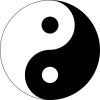Search the Community
Showing results for tags 'posture'.
Found 3 results
-
I've heard a few people say something about how full lotus helps when conserving jing/sexual energy. I see absolutely no reason why a particular sitting position would do this but then again I'm not all that knowledgable on the subject so I really don't know. Anyone know if there's any truth to this and if so can you elaborate?
-
Yo! So I fancied experimenting. I usually meditate in full lotus these days with my eyes shut in addition to my regular kung fu practice. However, after learning the techniques of Zazen, I couldn't help but resist trying out this new form. The practice is fairly similar to what I usually do...counting breaths to calm the mind but I usually then trail off onto what i need to focus on for that particular session. In Zazen, the counting is the sole focus and there is one major difference - the eyes are half open (as advised by many practitioners/teachers) and focussed at the floor roughly three feet in front. I found this extremely hard! All of a sudden, there are so many more distractions present that I am needing to avoid such as my eyelids flickering and going cross eyed. I guess this is the same as my kung fu forms, but at least in martial arts I'm moving so the temptation for the mind to wander is less. What are your experiences with half-open eyes? What are your opinions on Zazen? I would like to know more, and if you recommend half-open eyes as a good form of training concentration, mindfulness, and all round meditation
- 35 replies
-
- meditation
- technique
-
(and 5 more)
Tagged with:
-
Now here's an opportunity to lift this from the Tibetan Book of Living and Dying The Tibetan name of the Buddha of Compassion is Chenrézig. Chen is the eye, ré is the corner of the eye, and zig means "see." This signifies that with his compassionate eyes Chénrezig sees the needs of all beings. So direct the compassion that radiates from your meditation, softly and gently, through your eyes, so that your gaze becomes the very gaze of compassion itself, all-pervasive and oceanlike. There are several reasons for keeping the eyes open. With the eyes open, you are less likely to fall asleep. Then, meditation is not a means of running away from the world, or of escaping from it into a trancelike experience of an altered state of consciousness. On the contrary, it is a direct way to help us truly understand ourselves and relate to life and the world. Therefore, in meditation, you keep your eyes open, not closed. Instead of shutting out life, you remain open and at peace with everything. You leave all your senses—hearing, seeing, feeling—just open, naturally, as they are, without grasping after their perceptions. As Dudjom Rinpoche said: 'Though different forms are perceived, they are in essence empty; yet in the emptiness one perceives forms. Though different sounds are heard, they are empty; yet in the emptiness one perceives sounds. Also different thoughts arise; they are empty, yet in the emptiness one perceives thoughts." Whatever you see, whatever you hear, leave it as it is, without grasping. Leave the hearing in the hearing, leave the seeing in the seeing, without letting your attachment enter into the perception. According to the special luminosity practice of Dzogchen, all the light of our wisdom-energy resides in the heart center, which is connected through "wisdom channels" to the eyes. The eyes are the "doors" of the luminosity, so you keep them open, in order not to block these wisdom channels. When you meditate keep your mouth slightly open, as if about to say a deep, relaxing "Aaaah." By keeping the mouth slightly open and breathing mainly through the mouth, it is said that the "karmic winds" that create discursive thoughts are normally less likely to arise and create obstacles in your mind and meditation. Rest your hands comfortably covering your knees. This is called the "mind in comfort and ease" posture.
- 7 replies
-
- meditation
- eyes
-
(and 1 more)
Tagged with:




